- Home
- Mordecai Richler
The Street Page 2
The Street Read online
Page 2
Today the original Young Israel synagogue, where we used to chin the bar, is no longer there. A bank stands where my old poolroom used to be. Some of the familiar stores have gone. There have been deaths and bankruptcies. But most of the departed have simply packed up and moved with their old customers to the new shopping centres at Van Horne or Rockland, Westmount or Ville St. Laurent.
Up and down the Main you can still pick out many of the old restaurants and steak houses wedged between the sweater factories, poolrooms, cold-water flats, wholesale dry goods stores, and “Your Most Sanitary” barbershops. The places where we used to work in summer as shippers for ten dollars a week are still there. So is Fletcher’s Field High, right where it always was. Rabbinical students and boys with sidecurls still pass. These, however, are the latest arrivals from Poland and Rumania and soon their immigrant parents will put pressure on them to study hard and make good. To get out.
But many of our grandparents, the very same people who assured us the Main was only for bummers and failures, will not get out. Today when most of the children have made good, now that the sons and daughters have split-level bungalows and minks and West Indian cruises in winter, many of the grandparents still cling to the Main. Their children cannot in many cases persuade them to leave. So you still see them there, drained and used up by the struggle. They sit on kitchen chairs next to the Coke freezer in the cigar store, dozing with a fly swatter held in a mottled hand. You find them rolling their own cigarettes and studying the obituary columns in the Star on the steps outside the Jewish Library. The women still peel potatoes under the shade of a winding outside staircase. Old men still watch the comings and goings from the balcony above, a blanket spread over their legs and a little bag of polly seeds on their lap. As in the old days the sinking house with the crooked floor is right over the store or the wholesaler’s, or maybe next door to the scrap yard. Only today the store and the junk yard are shut down. Signs for Sweet Caporal cigarettes or old election posters have been nailed in over the missing windows. There are spider webs everywhere.
ONE
The Street
IN 1953, on the first Sunday after my return to Montreal from a two year stay in Europe, I went to my grandmother’s house on Jeanne Mance street.
A Yiddish newspaper fluttering on her massive lap, black bootlaces unravelled, my grandmother was ensconced in a kitchen chair on the balcony, seemingly rooted there, attended by sons and daughters, fortified by grandchildren. “How is it for the Jews in Europe?” she asked me.
A direct question from an old lady with a wart turned like a screw in her cheek and in an instant I was shorn of all my desperately acquired sophistication; my New Statesman outlook, my shaky knowledge of wines and European capitals; the life I had made for myself beyond the ghetto.
“I don’t know,” I said, my shame mixed with resentment at being reclaimed so quickly. “I didn’t meet many.”
Leaning against their shiny new cars, yawning on the balcony steps with hands thrust into their trouser pockets or munching watermelon, pinging seeds into saucers, my uncles reproached me for not having been to Israel. But their questions about Europe were less poignant than my grandmother’s. Had I seen the Folies Bergères? The changing of the guards? My uncles had become Canadians.
Canada, from the beginning, was second-best. It made us nearly Americans.
My grandfather, like so many others, ventured to Canada by steerage from a Galician shtetl, in 1904, following hard on the outbreak of the Russo-Japanese War and the singularly vile pogrom in Kishinev, which was instigated by the militant anti-Semite R A. Krushevan, editor of Znamya (The Banner), who four months later was the first to publish in Russia the Minutes of the Meeting of the World Union of Freemasons and Elders of Zion, which he called Programme for World Conquest by the Jews.
My grandfather, I was astonished to discover many years later, had actually had a train ticket to Chicago in his pocket. Canada was not a choice, but an accident. On board ship my grandfather encountered a follower of the same hasidic rabbi; the man had a train ticket to Montreal, but relatives in Chicago. My grandfather knew somebody’s cousin in Toronto, also in Canada, he was informed. So the two men swapped train tickets on deck one morning.
On arrival in Montreal my grandfather acquired a peddler’s licence and a small loan from the Baron de Hirsch Institute and dug in not far from the Main Street in what was to become a ghetto. Here, as in the real America, the immigrants worked under appalling conditions in sweatshops. They rented halls over poolrooms and grocery stores to meet and form burial societies and create shuls. They sent to the old country for younger brothers and cousins left behind, for rabbis and brides. Slowly, unfalteringly, the immigrants began to struggle up a ladder of streets, from one where you had to leave your garbage outside your front door to another where you actually had a rear lane as well as a back yard where corn and tomatoes were usually grown; from the three rooms over the fruit store or tailor shop to your own cold-water flat. A street with trees.
Our street was called St. Urbain. French for Urban. Actually there have been eight popes named Urban, but ours was the first. Urban 1. He was also the only one to have been canonized.
St. Urbain ultimately led to routes 11 and 18, and all day and night big refrigeration trucks and peddlers in rattling Chevys and sometimes tourists used to pass, hurtling to and from northern Quebec, Ontario, and New York State. Occasionally the truckers and peddlers would pull up at Tansky’s for a bite.
“Montreal’s a fine town,” they’d say. “Wide open.”
Unfailingly, one of the truckers would reply, “It’s the Gay Paree of North America.”
But if the trucker or peddler was from Toronto, he would add, ingratiatingly, “The only good thing about Toronto is the road to Montreal. Isn’t that so?”
The regulars at Tansky’s felt it was a good omen that the truckers and peddlers sometimes stopped there. “They know the best places,” Segal said.
Some of the truckers had tattoos on their arms, others chewed tobacco or rolled their own cigarettes with Old Chum. The regulars would whisper about them in Yiddish.
“I wonder how long that one’s been out of prison?”
“The one with all the holes in his face smells like he hasn’t changed his underwear since God knows when.”
The truckers struck matches against the seat of their shiny trousers or by flicking them with a thumbnail. They could spit on the floor with such a splash of assurance that it was the regulars who ended up feeling like intruders in Tansky’s Cigar & Soda.
“I’ll bet you the one with the ears can’t count to twenty without taking his shoes off.”
“But you don’t understand,” Takifman, nodding, sucking mournfully on an inverted pipe, would reassure them. “Statistics prove they’re happier than we are. They care their kids should go to the McGill? They have one every nine months regular as clock-work. Why? For the family allowance cheque.”
When the regulars carried on like that, belittling the bigger, more masculine men, Tansky would regard them reproachfully. He would put out delicate little feelers to the truckers. His brothers, the French Canadians. Vanquished, oppressed.
Peering over the rim of his glasses, Tansky would say, “Isn’t it a shame about the strikers in Granby?” Or looking up from his newspaper, pausing to wet a thumb, he’d try, “And what about our brothers, the blacks?”
Then he would settle back and wait.
If one of the truckers replied, “It’s shit, everything’s shit,” and the other sneered, “I try to mind my own business, buster,” Tansky’s shaggy grey head would drop and he would have to be reminded to add mustard and relish to the hamburgers. But if the truckers were responsive or, more likely, shrewd, if one said, “It’s the system,” and the other, “Maybe after the war things will be different,” they would earn heaping plates of french fried potatoes and complimentary refills of coffee.
“It’s one hell of a life,” one of the truckers might say
and Tansky would reply fervently, “We can change it. It’s up to the people.”
Even in winter the regulars used to risk the wind and the ice to slip outside and stamp up and down around the enormous trailer trucks, reminding each other that they too could have been millionaires today, fabled philanthropists, sought-after community leaders, if only, during prohibition, they too had been willing to bootleg, running booze over the border in trucks like these.
Another opportunity missed.
Looking in here, landing a little slap there, the regulars always stopped to give the tires a melancholy kick.
“You should have what one of these babies burns in gas in one night.”
“Ach. It’s no life for a family man.”
It was different with the peddlers. Most of them were, as Miller put it, members of the tribe. Even if a man was so stupid, such a putz, that he couldn’t tell from their faces or if – like Tansky, perhaps – he indignantly held that there was no such thing as a Jewish face, he still knew because before the peddlers even sat down for a coffee they generally phoned home and looked to see if Tansky sold pennants or toys to take back as a memento for the kids. They didn’t waste time, either. They zipped through their order book as they ate, biting their pencils, adding, subtracting, muttering to themselves, and if they were carrying an item that Tansky might feasibly use they tried to push a sale right there. If not, they would offer the regulars cut-rates on suits or kitchen ware. Some of the peddlers were kidders and carried come-ons with them to entice the French Canadian hicks in St. Jerome and Trois-Rivières, Tadoussac and Restigouche. Hold a key chain socket to your eye and see a naked cutie wiggle. Pour seltzer into a tumbler with a print of a girl on the side and watch her panties peel off.
Segal told all the peddlers the same joke, ruining it, as he did all his stories, by revealing the punch-line first. “Do you know the one,” he’d say, “that goes Bloomberg’s dead?”
“No. Well, I don’t think so.”
So Segal, quaking with laughter, would plunge into the story about this traveller, one of ours, a man called Bloomberg, who had a cock bigger than a Coorsh’s salami. Built stronger than Farber the iceman’s horse, let me tell you. He went from town to town, selling bolts of cloth, seconds, and banging shiksas (nuns included) on the cot in the back of his van, until the day he died. Another salesman, Motka Frish, was also in this godforsaken mining town in Labrador when he died. Motka hurried to the mortuary where the legendary Bloomberg lay on a slab and sliced off his cock, his unbelievably large member, to bring home and show to his wife, because otherwise, he thought, she would never believe a man could be so well hung. He returns home, unwraps the cock, and before he can get a word out, his wife has a peek and begins to pull her hair and wail. “Bloomberg’s dead,” she howls. “Bloomberg’s dead.”
Afterwards, still spilling with laughter, Segal would ask, “Heard any hot ones yourself lately?”
Takifman was another one who always had a word with the peddlers. “How is it,” he would ask, already tearful, “for the Jews in Valleyfield?”
Or if the peddler had just come from Albany it was, “I hear the mayor there is an anti-Semite.”
“Aren’t they all?”
“Not LaGuardia. LaGuardia of New York is A-1.”
The peddlers would usually ask for a couple of dollars in silver and retreat to the phone booth for a while before they left.
Tansky’s beat-up brown phone booth was an institution in our neighbourhood. Many who didn’t have phones of their own used it to summon the doctor. “I’d rather pay a nickel here than be indebted to that cockroach downstairs for the rest of my life.” Others needed the booth if they had a surreptitious little deal to transact or if it was the sabbath and they couldn’t use their own phones because they had a father from the stone ages. If you had a party line you didn’t dare use the phone in your own house to call the free loan society or the exterminator. Boys who wanted privacy used the phone to call their girl friends, though the regulars were particularly hard on them.
Between two and four in the afternoon the horse players held a monopoly on the phone. One of them, Sonny Markowitz, got an incoming call daily at three. Nat always took it for him. “Good afternoon,” he’d say. “Morrow Real Estate. Mr. Morrow. One moment, please.”
Markowitz would grab the receiver, his manner breathless. “Glad you called, honey. But I’ve got an important client with me right now. Yes, doll. You bet. Soon as I can. Hasta la vista.”
Anxious callers had long ago picked the paint off one wall of the booth. Others had scratched obscenities into the exposed zinc. Somebody who had been unable to get a date with Molly had used a key to cut MOLLY BANGS into the wall. Underneath, Manny had written ME TOO, adding his phone number. Doodles tended toward the expansively pornographic, they were boastful too, and most of the graffiti was obvious. KILROY WAS HERE. OPEN UP A SECOND FRONT. PERLMAN’S A SHVANTZ.
After each fight with Joey, Sadie swept in sobbing, hysterical, her housecoat fluttering. She never bothered to lower her voice. “It’s happened again, Maw. No, he wasn’t wearing anything. He wouldn’t. Sure I told him what the doctor said. I told him. He said what are you, the B’nai Jacob Synagogue, I can’t come in without wearing a hat? How do I know? I’m telling you, Maw, he’s a beast, I want to come home to you. That’s not true. I couldn’t stop him if I wanted to. Yes, I washed before Seymour. A lot of good it does. All right, Maw. I’ll tell him.”
Sugarman never shuffled into Tansky’s without first trying the slot in the booth to see if anyone had left a nickel behind. The regulars seldom paid for a call. They would dial their homes or businesses, ring twice, hang up, and wait for the return call.
Tansky’s was not the only store of its sort on St. Urbain. Immediately across the street was Myerson’s.
Myerson had put in cushions for the card players, he sold some items cheaper than Tansky, but he was considered to be a sour type, a regular snake, and so he did not do too well. He had his regulars, it’s true, and there was some drifting to and fro between the stores out of pique, but if a trucker or a peddler stopped at Myerson’s it was an accident.
Myerson had a tendency to stand outside, sweeping up with vicious strokes, and hollering at the men as they filed into Tansky’s. “Hey, why don’t you come over here for once? I won’t bite you. Blood poisoning I don’t need.”
Myerson’s rage fed on the refugees who began to settle on St. Urbain during the war years. “If they come in it’s for a street direction,” he’d say, “or if it’s for a Coke they want a dozen glasses with.” He wasn’t kind to kids. “You know what you are,” he was fond of saying, “your father’s mistake.”
If we came in to collect on empty bottles, he’d say, “We don’t deal in stolen goods here. Try Tansky’s.”
We enjoyed the excitement of the passing peddlers and truckers on St. Urbain – it was, as Sugarman said, an education – but we also had our traffic accidents. Once a boy was killed. An only son. Another time an old man. But complain, complain, we could not get them to install traffic lights on our corner.
“When one of ours is killed by a car they care? It saves them some dirty work.”
But Tansky insisted it wasn’t anti-Semitism. Ours was a working-class area. That’s why we didn’t count.
St. Urbain was one of five working-class ghetto streets between the Main and Park Avenue.
To a middle-class stranger, it’s true, the five streets would have seemed interchangeable. On each corner a cigar store, a grocery, and a fruit man. Outside staircases everywhere. Winding ones, wooden ones, rusty and risky ones. An endless repetition of precious peeling balconies and waste lots making the occasional gap here and there. But, as we boys knew, each street between the Main and Park Avenue represented subtle differences in income. No two cold-water flats were alike and no two stores were the same either. Best Fruit gypped on weight but Smiley’s didn’t give credit.
Of the five streets, St. Urbain was the best. T
hose on the streets below, the out-of-breath ones, the borrowers, the yentas, flea-carriers and rent-skippers, goniffs from Galicia, couldn’t afford a day in the country or tinned fruit for dessert on the High Holidays. They accepted parcels from charity matrons (Outremont bitches) on Passover, and went uninvited to bar-mitzvahs and weddings to carry off cakes, bottles, and chicken legs. Their English was not as good as ours. In fact, they were not yet Canadians. Greeners, that’s what they were. On the streets above, you got the ambitious ones. The schemers and the hat-tippers. The pusherkes.
Among the wonders of St. Urbain, our St. Urbain, there was a man who ran for alderman on a one-plank platform – provincial speed cops were anti-Semites. There was a semi-pro whore, Cross-Eyed Yetta, and a gifted cripple, Pomerantz, who had had a poem published in transition before he shrivelled and died at the age of twenty-seven. There were two men who had served with the Mackenzie-Paps in the Spanish Civil War and a girl who had met Danny Kaye in the Catskills. A boy nobody remembered who went on to become a professor at M.I.T. Dicky Rubin who married a shiksa in the Unitarian Church. A boxer who once made the Ring magazine ratings. Lazar of Best Grade Fruit who raked in twenty-five hundred dollars for being knocked down by a No. 43 streetcar. Herscovitch’s nephew Larry who went to prison for yielding military secrets to Russia. A woman who actually called herself a divorcée. A man, A.D.’s father, who was bad luck to have in your house. And more, many more.
St. Urbain was, I suppose, somewhat similar to ghetto streets in New York and Chicago. There were a number of crucial differences, however. We were Canadians, therefore we had a King. We also had “pea-soups,” that is to say, French Canadians, in the neighbourhood. While the King never actually stopped on St. Urbain, he did pass a few streets above on his visit to Canada just before the war. We were turned out of school to wave at him on our first unscheduled holiday, as I recall it, since Buster Crabbe, the Tarzan of his day, had spoken to us on Canada Youth Day.

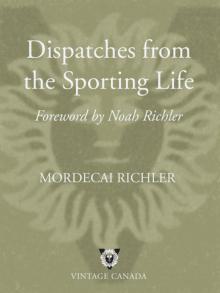 Dispatches From the Sporting Life
Dispatches From the Sporting Life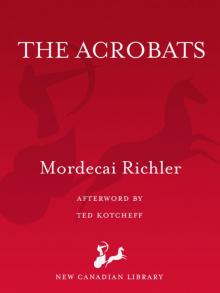 The Acrobats
The Acrobats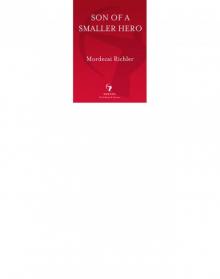 Son of a Smaller Hero
Son of a Smaller Hero Jacob Two-Two-'S First Spy Case
Jacob Two-Two-'S First Spy Case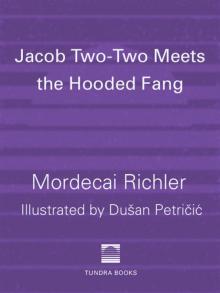 Jacob Two-Two Meets the Hooded Fang
Jacob Two-Two Meets the Hooded Fang Jacob Two-Two and the Dinosaur
Jacob Two-Two and the Dinosaur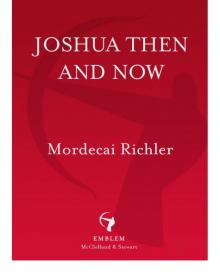 Joshua Then and Now
Joshua Then and Now Solomon Gursky Was Here
Solomon Gursky Was Here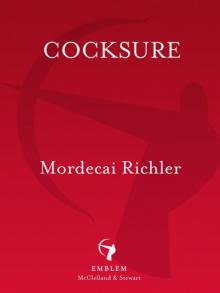 Cocksure
Cocksure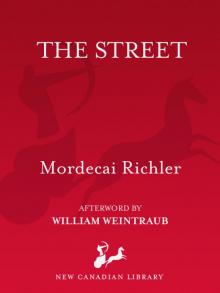 The Street
The Street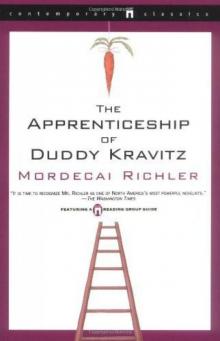 The Apprenticeship of Duddy Kravitz
The Apprenticeship of Duddy Kravitz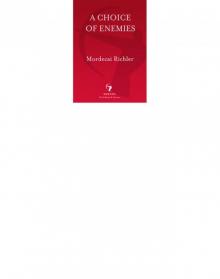 A Choice of Enemies
A Choice of Enemies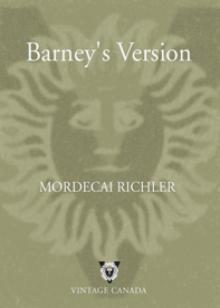 Barney's Version (Movie Tie-In Edition)
Barney's Version (Movie Tie-In Edition)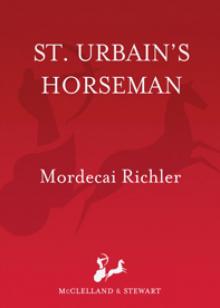 St. Urbain's Horseman
St. Urbain's Horseman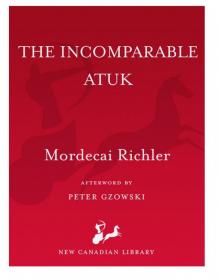 The Incomparable Atuk
The Incomparable Atuk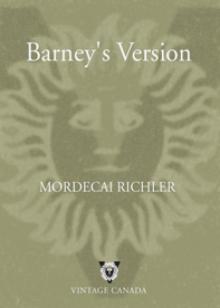 Barney's Version
Barney's Version